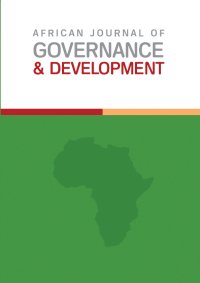Institutional quality and Economic Performance in the Southern African Development Community (SADC) Region: A Dynamic Panel Analysis
Main Article Content
Abstract
The quality of institutions has increasingly become a key determinant of economic performance. This confirms a paradigm shift from the conventional macroeconomic determinants to governance as the crucial determining factor of economic performance, particularly in developing countries where economic growth is stagnant or moving at a meagre rate. With the aid of macroeconomic and governance data, this paper reports on an empirical analysis performed to quantify the impact of institutional quality on economic performance in Southern African economies over the period 2009-2019 by employing Generalized Method of Moments (GMM) technique with fixed effects. The empirical results indicate a negative and statistically significant coefficient for the governance index, inflation, and natural resources towards GDP growth. In contrast, trade openness, financial development, and domestic investment have positive and statistically significant coefficients. Based on the composite governance index, these results suggest that a weak institutional environment that aggravates corruption levels causes instability while also stimulating rent-seeking behaviour, which ultimately stifles economic performance in the region. Therefore, to attain inclusive and sustainable economic growth rates, the regional authorities should strengthen the law and enforce the rules.
Article Details

This work is licensed under a Creative Commons Attribution-NonCommercial-NoDerivatives 4.0 International License.
